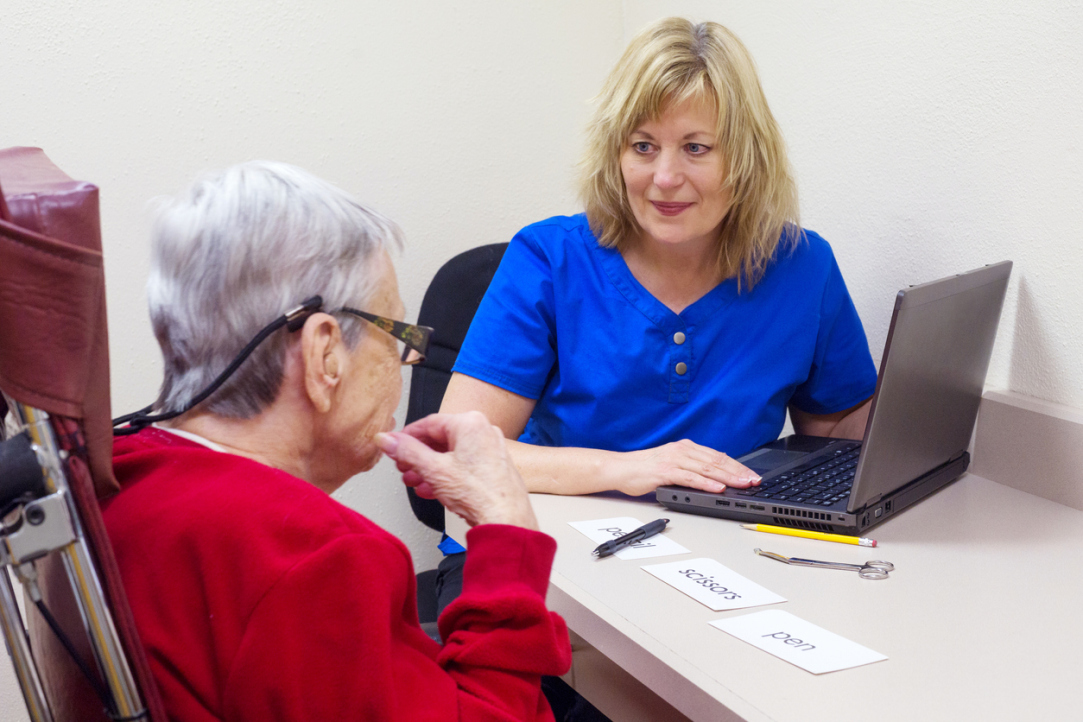Scientists Find Out Why Aphasia Patients Lose the Ability to Talk about the Past and Future

An international team of researchers, including scientists from the HSE Centre for Language and Brain, has identified the causes of impairments in expressing grammatical tense in people with aphasia. They discovered that individuals with speech disorders struggle with both forming the concept of time and selecting the correct verb tense. However, which of these processes proves more challenging depends on the speaker's language. The findings have been published in the journal Aphasiology.
Aphasia is a severe speech disorder, often resulting from a stroke, in which individuals lose the ability to speak coherently. In particular, this can manifest as incorrect use of verb tenses, making it difficult for patients to talk about past or future events, significantly complicating everyday communication.
To investigate the origins of these difficulties, researchers from universities in Russia, Greece, Italy, the US, and Norway conducted an experiment. They hypothesised that tense expression impairments could stem from two distinct processes: encoding and retrieval. During encoding, a speaker forms the concept of time (for example, whether an action occurred in the past, present, or future). During retrieval, they select the correct verb form to express that concept. To understand the impact of each process, the scientists carried out experiments with aphasia patients speaking four different languages: Greek, Russian, Italian, and English. These languages were chosen because they structure verb tenses differently, allowing the researchers to examine how language-specific features influence encoding and retrieval of tense in aphasia patients.
To aid in diagnosis, the researchers designed two sentence-completion tasks. The first task asked participants to fill in blanks in sentences, requiring both processes—encoding and retrieval. They had to complete the sentence according to the model, considering the change in the tense form of the verb. For example: ‘Yesterday, the gardener watered the flowers. Tomorrow, the gardener will... the flowers.’ The second tasks expected participants to complete sentences without changing the verb tense. They were given the phrase ‘to water the plants’ and heard the example sentence ‘The gardener is currently collecting mushrooms.’ Then they were then prompted to begin a sentence with ‘The gardener is currently...’ and complete it with the phrase ‘watering the plants’ in the correct form, resulting in ‘is watering the plants.’
By comparing the results from these tasks, the researchers could determine whether the primary difficulties arose during encoding or retrieval.
The study revealed that most participants experienced impairments in both encoding and retrieval, but the severity of these issues varied depending on the language and the individual. For instance, Russian- and English-speaking participants struggled more with the retrieval task, while Greek- and Italian-speaking participants faced challenges primarily during encoding. Interestingly, difficulties in expressing time were selective. Some patients had trouble referencing the past, while others struggled with the future.
‘These findings are crucial for understanding how aphasia patients lose the ability to express time differently, depending on the characteristics of their language,’ explained Olga Buivolova, Research Fellow at the HSE Centre for Language and Brain and one of the study’s authors. ‘We can now better evaluate which aspects of time pose the greatest challenges for patients and begin developing more tailored therapeutic approaches.’
As researchers note, the main conclusions of the study may also have practical implications for neurorehabilitation. Firstly, this experimental method can help identify the underlying causes of difficulties with using verb tenses. This means that speech therapists and neuropsychologists will be able to work more thoroughly and effectively with patients on speech recovery.
Secondly, the study helps to understand how differences between languages can affect the symptoms of aphasia. This is important for developing standardised tests and methods that consider the specifics of a speaker's native language, ultimately leading to more accurate and comprehensive diagnosis of patients with aphasia.
See also:
Scientists Uncover Why Consumers Are Reluctant to Pay for Sugar-Free Products
Researchers at the HSE Institute for Cognitive Neuroscience have investigated how 'sugar-free' labelling affects consumers’ willingness to pay for such products. It was found that the label has little impact on the products’ appeal due to a trade-off between sweetness and healthiness: on the one hand, the label can deter consumers by implying an inferior taste, while on the other, it signals potential health benefits. The study findings have been published in Frontiers in Nutrition.
HSE Psycholinguists Launch Digital Tool to Spot Dyslexia in Children
Specialists from HSE University's Centre for Language and Brain have introduced LexiMetr, a new digital tool for diagnosing dyslexia in primary school students. This is the first standardised application in Russia that enables fast and reliable assessment of children’s reading skills to identify dyslexia or the risk of developing it. The application is available on the RuStore platform and runs on Android tablets.
Physicists Propose New Mechanism to Enhance Superconductivity with 'Quantum Glue'
A team of researchers, including scientists from HSE MIEM, has demonstrated that defects in a material can enhance, rather than hinder, superconductivity. This occurs through interaction between defective and cleaner regions, which creates a 'quantum glue'—a uniform component that binds distinct superconducting regions into a single network. Calculations confirm that this mechanism could aid in developing superconductors that operate at higher temperatures. The study has been published in Communications Physics.
Neural Network Trained to Predict Crises in Russian Stock Market
Economists from HSE University have developed a neural network model that can predict the onset of a short-term stock market crisis with over 83% accuracy, one day in advance. The model performs well even on complex, imbalanced data and incorporates not only economic indicators but also investor sentiment. The paper by Tamara Teplova, Maksim Fayzulin, and Aleksei Kurkin from the Centre for Financial Research and Data Analytics at the HSE Faculty of Economic Sciences has been published in Socio-Economic Planning Sciences.
Larger Groups of Students Use AI More Effectively in Learning
Researchers at the Institute of Education and the Faculty of Economic Sciences at HSE University have studied what factors determine the success of student group projects when they are completed with the help of artificial intelligence (AI). Their findings suggest that, in addition to the knowledge level of the team members, the size of the group also plays a significant role—the larger it is, the more efficient the process becomes. The study was published in Innovations in Education and Teaching International.
New Models for Studying Diseases: From Petri Dishes to Organs-on-a-Chip
Biologists from HSE University, in collaboration with researchers from the Kulakov National Medical Research Centre for Obstetrics, Gynecology, and Perinatology, have used advanced microfluidic technologies to study preeclampsia—one of the most dangerous pregnancy complications, posing serious risks to the life and health of both mother and child. In a paper published in BioChip Journal, the researchers review modern cellular models—including advanced placenta-on-a-chip technologies—that offer deeper insights into the mechanisms of the disorder and support the development of effective treatments.
Using Two Cryptocurrencies Enhances Volatility Forecasting
Researchers from the HSE Faculty of Economic Sciences have found that Bitcoin price volatility can be effectively predicted using Ethereum, the second-most popular cryptocurrency. Incorporating Ethereum into a predictive model reduces the forecast error to 23%, outperforming neural networks and other complex algorithms. The article has been published in Applied Econometrics.
Administrative Staff Are Crucial to University Efficiency—But Only in Teaching-Oriented Institutions
An international team of researchers, including scholars from HSE University, has analysed how the number of non-academic staff affects a university’s performance. The study found that the outcome depends on the institution’s profile: in research universities, the share of administrative and support staff has no effect on efficiency, whereas in teaching-oriented universities, there is a positive correlation. The findings have been published in Applied Economics.
Physicists at HSE University Reveal How Vortices Behave in Two-Dimensional Turbulence
Researchers from the Landau Institute for Theoretical Physics of the Russian Academy of Sciences and the HSE University's Faculty of Physics have discovered how external forces affect the behaviour of turbulent flows. The scientists showed that even a small external torque can stabilise the system and extend the lifetime of large vortices. These findings may improve the accuracy of models of atmospheric and oceanic circulation. The paper has been published in Physics of Fluids.
Solvent Instead of Toxic Reagents: Chemists Develop Environmentally Friendly Method for Synthesising Aniline Derivatives
An international team of researchers, including chemists from HSE University and the A.N. Nesmeyanov Institute of Organoelement Compounds of the Russian Academy of Sciences (INEOS RAS), has developed a new method for synthesising aniline derivatives—compounds widely used in the production of medicines, dyes, and electronic materials. Instead of relying on toxic and expensive reagents, they proposed using tetrahydrofuran, which can be derived from renewable raw materials. The reaction was carried out in the presence of readily available cobalt salts and syngas. This approach reduces hazardous waste and simplifies the production process, making it more environmentally friendly. The study has been published in ChemSusChem.



